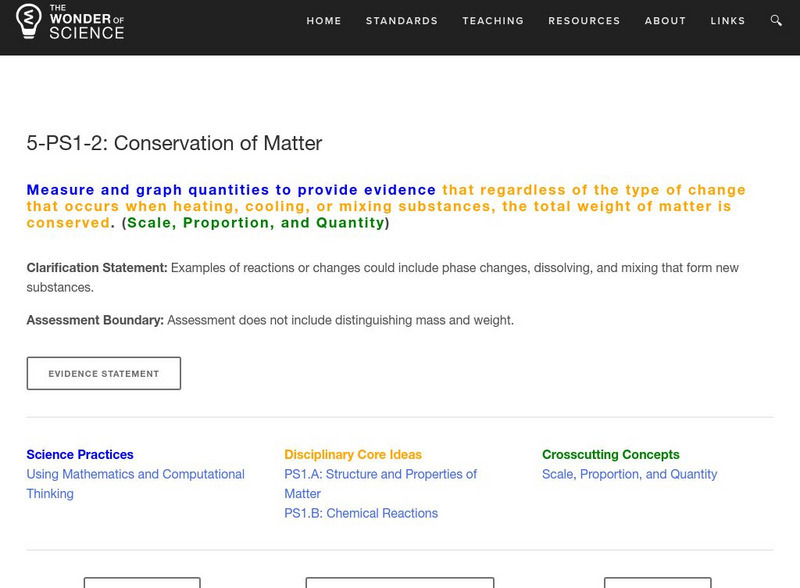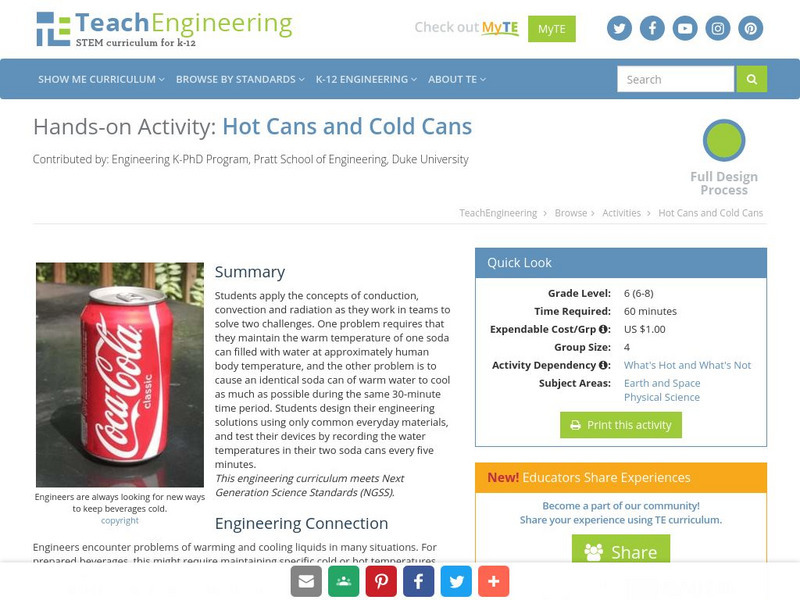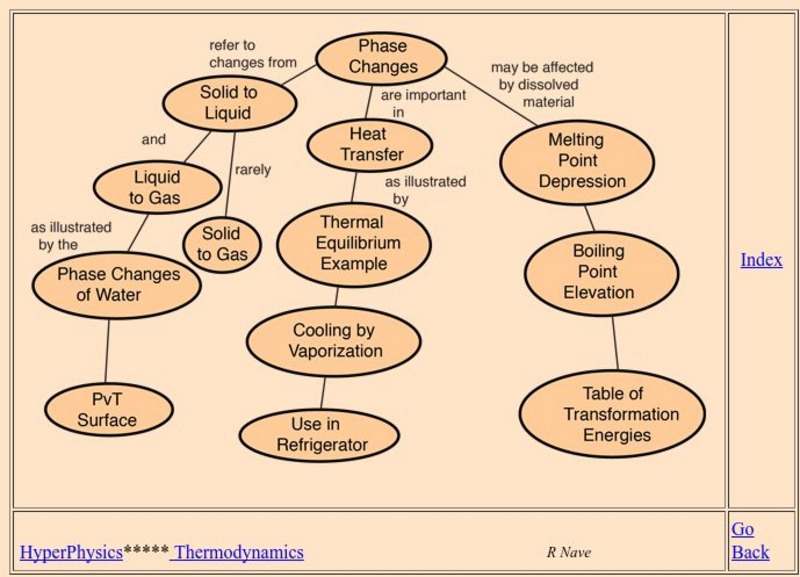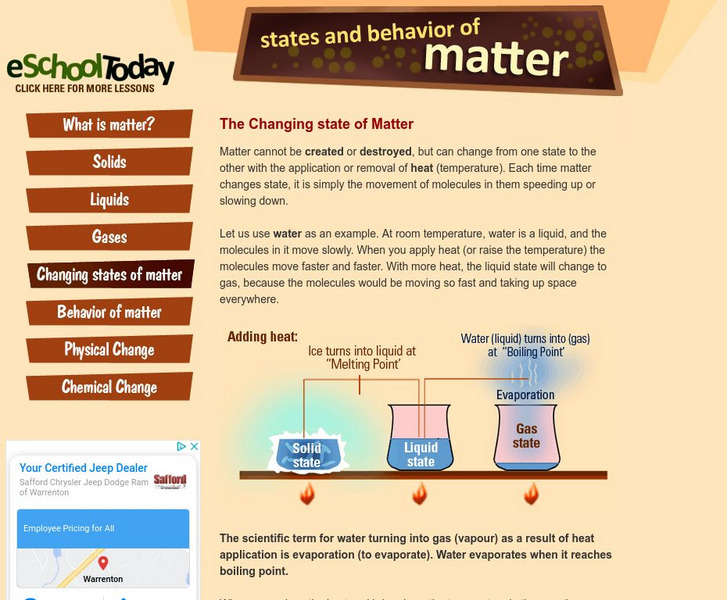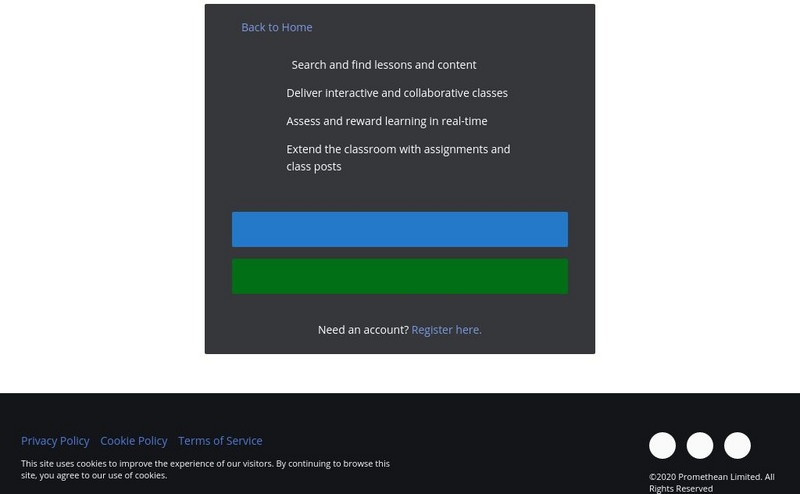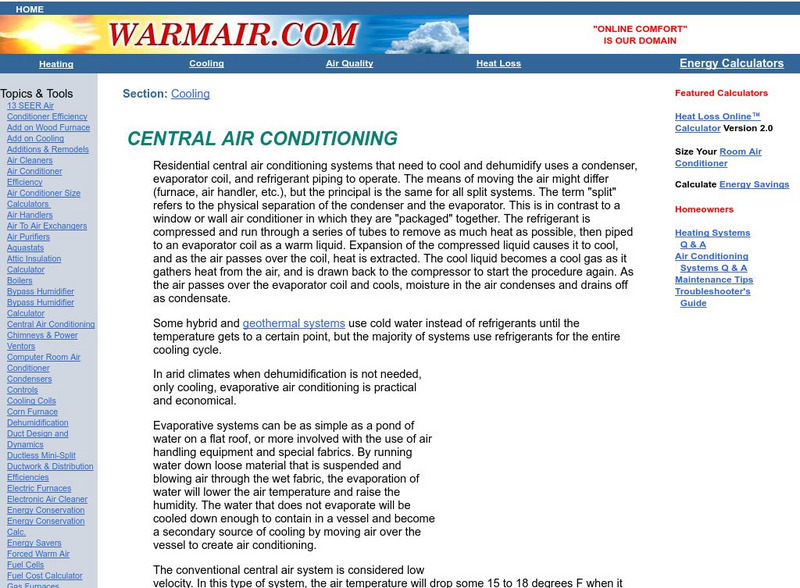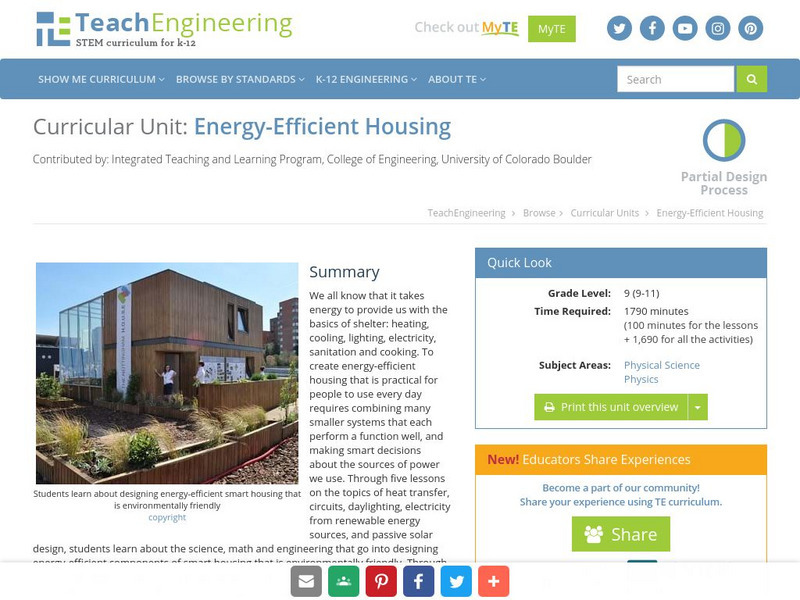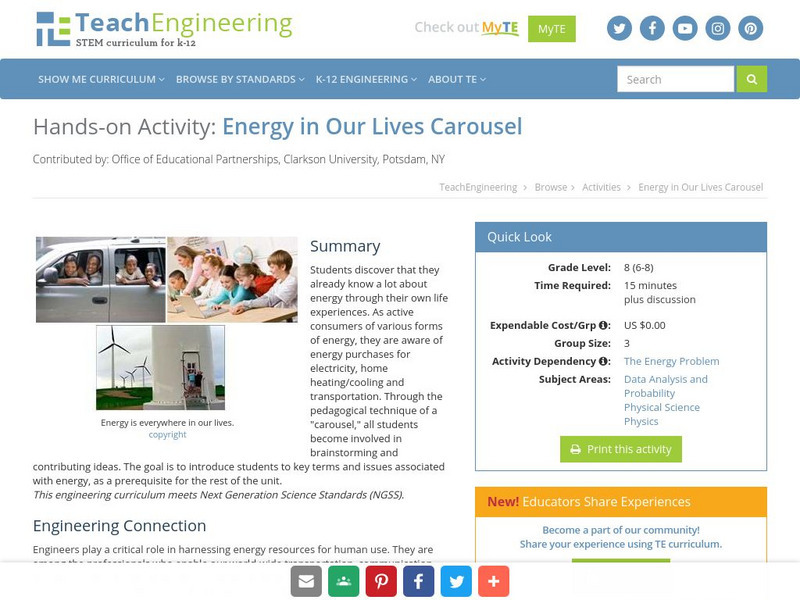Science Struck
Science Struck: Conduction, Convection, and Radiation
Explains the concept of heat transfer and describes conduction, convection, and radiation which are the three modes of heat transfer. Includes formulas, examples, and applications.
TeachEngineering
Teach Engineering: Conduction, Convection, and Radiation
With the help of simple, teacher-led demonstration activities, students learn the basic concepts of heat transfer by means of conduction, convection, and radiation. Students then apply these concepts as they work in teams to solve two...
American Chemical Society
Middle School Chemistry: The Ups and Downs of Thermometers
Based on experimental observations, learners describe, on the molecular level, why the liquid in a thermometer goes up when it is heated and down when it is cooled.
MadSci Network
Msn: How Does an Air Conditioner or Refrigerator Work?
From the Mad Scientist Network. Using a question and answer format, this page explains the answer to the question "How does An air conditioner or refrigerator work?" The scientific principles which underly their operation and the process...
Curated OER
Etc: Maps Etc: Heat Belts in North America, 1898
A map from 1898 showing the heat belts in North America. The map gives the boundary isotherms of the hot belt as a mean temperature of 70 degrees Fahrenheit and the cold belt as a mean temperature of 30 degrees Fahrenheit, indicating the...
The Wonder of Science
The Wonder of Science: 5 Ps1 2: Conservation of Matter
On this site, find a variety of materials to help students understand the conservation of matter. Create lessons that allow students to measure and graph quantities that could show even if matter is heated, cooled or combined with other...
National High Magnetic Field Laboratory
Magnet Academy: Jean Charles Athanase Peltier (1785 1845)
Although he didn't start studying physics until he retired from the clock-making business at age 30, French native Jean Peltier made immense contributions to science that still reverberate today. Even with the primitive tools available...
California Institute of Technology
Learn About Infrared
The people at Cool Cosmos explain infrared in a comprehensible way. They use several sets of pictures for you to visually see how infrared rays work. Great for anyone doing research or just reading up on an interest.
BBC
Bb Ci Schools: Revisewise Science: Solids, Liquids, Gases
This site contains an interactive activity in which students can learn about the three states of matter. There is also a factsheet that lists numerous properties of liquids, solids, and gases. The factsheet also uses water as an example...
TeachEngineering
Teach Engineering: Hot Cans and Cold Cans
Students apply the concepts of conduction, convection, and radiation as they work in teams to solve two problems. One problem requires that they maintain the warm temperature of one soda can filled with water at approximately body...
ClassFlow
Class Flow: States of Matter
[Free Registration/Login Required] This flipchart describes the 3 states of matter and how materials can change through heating and cooling.
PBS
Pbs Teachers: Daredevil Ball Jump Ii Experiment
Make alterations in the variables of the original ZOOM Daredevil Ball Jump activity by heating or cooling the balls in the experiment. Predict how the balls' bounces will be affected by hot and cold, test the predictions and record the...
Georgia State University
Georgia State University: Hyper Physics: Zeroth Law of Thermodynamics
The principle of thermal equilibrium is discussed and explained. The zeroth law of thermodynamics is stated. Links to several other pages with related information are provided.
Georgia State University
Georgia State University: Hyper Physics: Phase Change Concepts
An indexing page for the HyperPhysics site. This page includes links to a variety of pages at the site which contain information related to phase changes. Each individual page consists of informative graphics and clear explanations.
American Chemical Society
Middle School Chemistry: Molecules in Motion
Slide the temperature gauge and see what happens to the movement of the molecules.
eSchool Today
E School Today: The Changing State of Matter
Learn about the changing states of matter.
Better Planet Productions
Earth Care: Movers and Shakers [Pdf]
Wind is created in areas where there are temperature shifts. For this lesson, Grade Two students will investigate areas of their schoolyard where there are 'wind tunnels' and 'wind shadows'. They will then use this information to...
ClassFlow
Class Flow: Keeping Warm
[Free Registration/Login Required] Through this unit children build their ideas about temperature as a measure of how hot or cold objects are and learn about thermal insulators as materials that can help to keep things warm or cool.
Other
Warm Air: Central Air Conditioning
The operation of conventional air conditioners are described. Their parts and the refrigerant/heat exchange cycle is discussed. The use of alternative geothermal systems are explained.
TeachEngineering
Teach Engineering: Energy Efficient Housing
We all know that it takes energy to provide us with the basics of shelter: heating, cooling, lighting, electricity, sanitation and cooking. To create energy-efficient housing that is practical for people to use every day requires...
University of Colorado
University of Colorado: Ph Et Interactive Simulations: University of Colorado: States of Matter: Basics
An interactive simulation will heat, cool and compress atoms and molecules. Watch as they change between solid, liquid and gas phases. Recognize that different substances have different properties which will affect the temperatures for...
TeachEngineering
Teach Engineering: Energy in Our Lives Carousel
This activity is a way for students to discover that they already know a lot about energy through their own life experiences. As active consumers of various forms of energy, they are aware of energy purchases for electricity, home...
OpenSciEd
Open Sci Ed: 6.2 Thermal Energy Teacher Professional Development Overview
This four-day professional development session introduces teachers to the OpenSciEd materials generally in addition to the 6.2 Thermal Energy unit.
University Corporation for Atmospheric Research
Ucar: Bubbles on Bottles
Students observe that a change in the temperature of air can impact the size of a bubble placed on a bottle that is cooled and/or heated.





